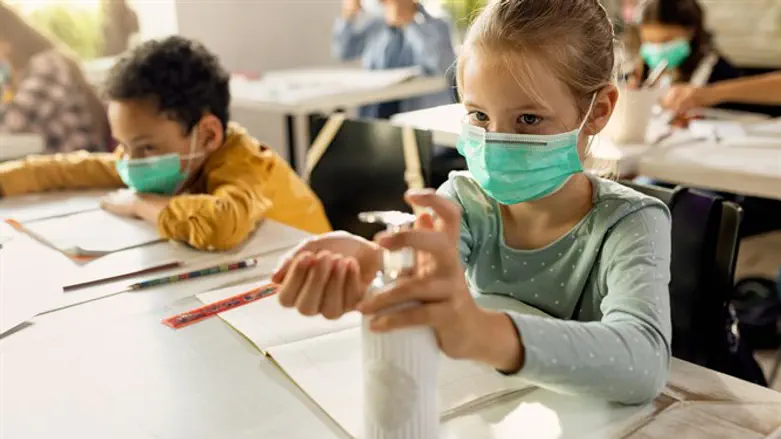
Israeli researchers at the Shaare Zedek Medical Center in Jerusalem have found that coronavirus antibody levels in children decrease over time, and most of the children who tested positive over four months ago no longer have antibodies, Israel Hayom reported.
In the study, which Shaare Zedek conducted together with Israel's Health Ministry, researchers performed antibody tests on children arriving at the hospital's emergency room, who comprise a representative sample of Jerusalem's children. The research found that approximately 10% of the participants had previously been ill with coronavirus, but only around half of them knew about it.
It also found that among the patients, the antibody levels dropped gradually following the children's recovery, and most of the children who were checked over four months after the illness did not have any detectable antibodies in their blood.
In the research, which included over 1,000 children who arrived at the emergency room beginning in October 2020, 29% of the children who were infected and had previously been infected showed a negative serological test. Of those, one-third were checked up to three weeks from the start of the illness, apparently before they had created antibodies.
Most of the others who were checked and found to be negative after having been confirmed to have coronavirus were checked over four months after their illness, and apparently the level of antibodies they developed after infection was already not detectable. These findings may show that children have weaker long-term immunity to the virus.
The research also found that reopening schools at the time the research was conducted did not raise the infection rate among children. The researches found that there was no excess of antibodies among children who for various reasons continued to attend educational institutions during the lockdowns, when compared to children who remained at home. In addition, during the study period, no changes in infection rates were seen during the period when they opened the schools.
"The research showed that with children, the maximum antibody level is reached up to three months following diagnosis," said Professor Yechiel Shlezinger, Medical Director of Shaare Zedek's Wilf Children's Hospital and a specialist in infectious diseases. "After that, we witness a significant drop in antibodies, even more than among adults."
He added: "After the peak antibody level is reached, we see a gradual decrease over time, until after four months from the illness, 77% of those examined who contracted the illness in the past were left with no detectable antibody levels. This compares to the period between two and three months after the illness, during which just 8% were discovered not to have antibodies. In addition, the study showed different levels of antibodies over time in the youngest age group, up to six years of age, when compared to the children in the older age group."
"The results of this research have significant consequences with regards to understanding herd immunity, the possibility that a new wave of infections will occur, and the considerations with regards to vaccinations even for young children," Prof. Shlezinger, who was one of the lead researchers, concluded. "It must be emphasized that this was a local research with limited numbers which was conducted more than a few months ago, and Stage 2 of the research is still ongoing."
